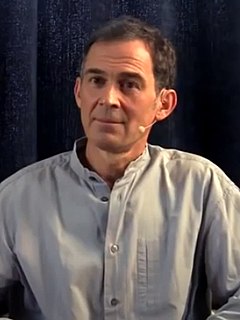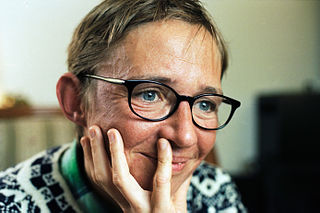A Quote by Paramahansa Yogananda
The man of Self-realization knows a bliss that cannot be compared to anything in this world. His joy is independent of any object or sensory experience. It is an incomparable happiness that cannot be described in words. Such joy is known as sattvik-ananda.
Related Quotes
The joy of Being, which is the only true happiness, cannot come to you through any form, possession, achievement, person, or event - through anything that happens. That joy cannot come to you - ever. It emanates from the formless dimension within you, from consciousness itself and thus is one with who you are.
To be awake and harmonious creates the possibility for ecstasy to happen. Ecstasy means the ultimate joy, inexpressible; no words are adequate to say anything about it. And when one has attained to ecstasy, when one has known the ultimate peak of joy, compassion comes as a consequence. When you have that joy, you like to share it; you cannot avoid sharing, sharing is inevitable.
This is the doctrine of Christian Science: that divine Love cannot be deprived of its manifestation, or object; that joy cannot be turned into sorrow, for sorrow is not the master of joy; that good can never produce evil; that matter can never produce mind nor life result in death. The perfect man - governed by God, his perfect Principle - is sinless and eternal.
The concept (of happiness) is universal. In Buddhism, it is called causeless joy, in Christianity, the kingdom of heaven within, and in Judaism it is called ashrei, an inner sense of holiness and health. Is Islam it is called falah, happiness and well-being, and in Hinduism it is called ananda, or pure bliss.
It is the consciousness of the threefold joy of the Lord, His joy in ransoming us, His joy in dwelling within us as our Saviour and Power for fruitbearing and His joy in possessing us, as His Bride and His delight; it is the consciousness of this joy which is our real strength. Our joy in Him may be a fluctuating thing: His joy in us knows no change.
Joy is not the same as pleasure or happiness. A wicked and evil man may have pleasure, while any ordinary mortal is capable of being happy. Pleasure generally comes from things, and always through the senses; happiness comes from humans through fellowship. Joy comes from loving God and neighbor. Pleasure is quick and violent, like a flash of lightning. Joy is steady and abiding, like a fixed star. Pleasure depends on external circumstances, such as money, food, travel, etc. Joy is independent of them, for it comes from a good conscience and love of God.
Joy is what we are, not what we must get. Joy is the realization that all we want or need in life has been etched into our souls. Joy helps us see not what we are "going through," but what we are "growing to"-a greater sense of understanding, accomplishment, and enlightenment. Joy reveals to us the calm at the end of the storm, the peace that surpasses the momentary happiness of pleasure. If we keep our minds centered on joy, joy becomes a state of mind.
Your Self, Aware Presence, knows no resistance to any appearance and, as such, is happiness itself; like the empty space of a room it cannot be disturbed and is, therefore, peace itself; like this page, it is intimately one with whatever appears on it and is thus love itself; and like water that is not affected by the shape of a wave, it is pure freedom. Causeless joy, imperturbable peace, love that knows no opposite and freedom at the heart of all experience....this is your ever-present nature under all circumstances.
You know, that's what I've regretted the most, that joy. Of course, later there were times when I felt happy, but happiness is to joy what an electric light bulb is to the sun. Happiness always has an object, you're happy because of something, it's a condition whose existence depends on external things. Joy, on the other hand, has no object. It seizes you for no apparent reason; it's like the sun- its burning is fueled by its own heart.










































